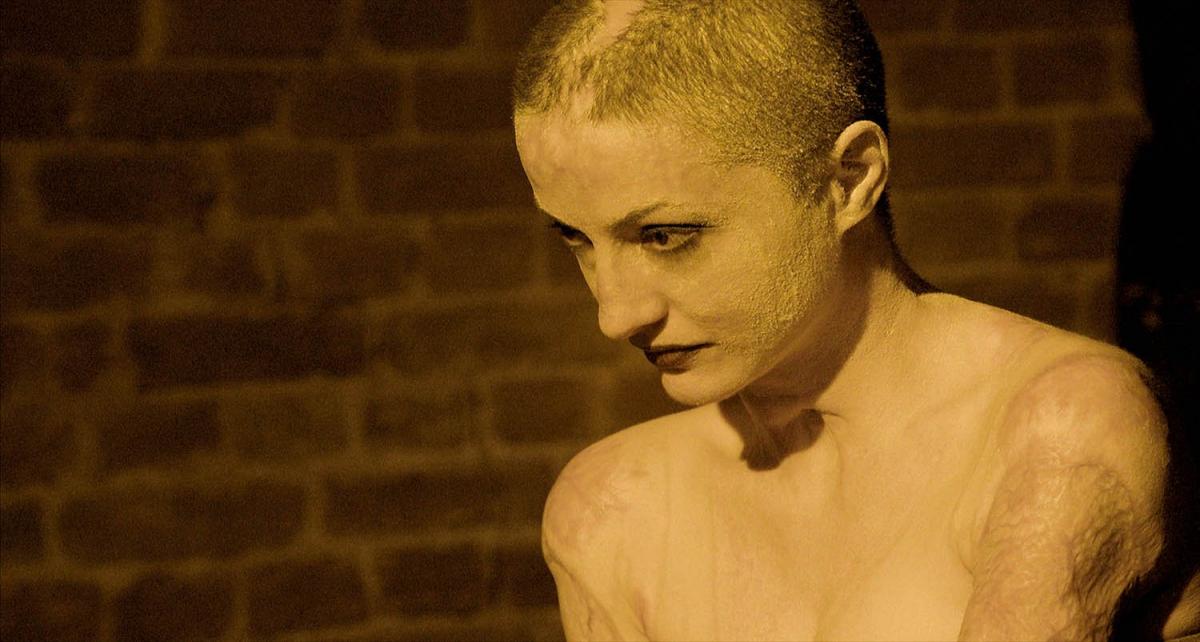
The riveting documentary Collective begins where a lesser one might end. The film examines the aftermath of the notorious fire at the Colectiv rock club in Bucharest in 2015. A metalcore band called Goodbye to Gravity had been performing. They had finished their outdoor-style pyrotechnics—doubly dangerous in such a poorly ventilated space—when another fire broke out behind the stage. “That’s not part of our act,” the lead singer is heard saying nervously in the widely circulated video (shown early in the film) that captured the tragic event. And in an instant, the room was engulfed in flames. People ran and screamed. The camera got shaky, and blurry, and then finally went black. Twenty-seven people died that night and 180 more were injured. Then 37 died in the Romanian hospital system.
That’s where our action picks up. The original sin of the Romanian government is evident: There were no emergency exits in the club. No sprinkler system. No fire laws. This revelation leads to protesting in the streets and the overthrowing of the Social Democratic government that had been in power.
The next sin will be revealed through the investigation of an intrepid team of journalists, led by a reporter-turned-folk-hero named Tolontan, at The Sports Gazette. (It’s never made clear why the best reporting in Romania is being done at a sports newspaper, but is perhaps an indication of just how entrenched the political corruption is—even newspapers aren’t immune.) What he and his fellow journalists discover is that hundreds of local hospitals use diluted—and therefore ineffective—disinfectant, all bought from the same corrupt bio-pharmacy firm.
Because director Alexander Nanau is working in a cinema verité style, the events unfold before us, in real time. We meet the slick Minister of Health who tries to cover up the hospital’s malfeasance. When his lies are exposed, he resigns and we’re suddenly introduced to our next main character, the boyish Vlad Voiculescu, a former patient rights activist now thrust into the role of Minister of Health.
“Hi, I’m Vlad,” he says, smiling sheepishly at his first press conference. He’s committed to cleaning up Romania’s corrupt healthcare system, but is clearly in way over his head. And he’s constantly shocked by the depths of the cover-up.
Back at the Sports Gazette, more bad behavior is exposed. A doctor shares footage of—well, there’s no other way to put this gently—maggots crawling across a festering wound in a hospital. Burn patients, we know, need the most scrupulous care, otherwise they are suspectable to sepsis. The doctor has come forward because she is distraught and feels helpless. She knows that her hospital is not only not saving people, but, in some cases, subjecting them to a gruesome, painful death.
But how deep does the corruption go? It’s positively byzantine: Adminstrators, doctors, pharmaceutical companies, and government officials are all on the take. There’s a mysterious death of a man at the heart of the controversy—was it an accident, suicide, or murder?
Nanau also introduces us to Tedy Ursuleanu, a 29-year-old architect who was severely burned at the club. She survived, despite having burns over 45 percent of her body. (Notably, she wasn’t treated in Romania.) She lost one hand and part of another, plus her neck, arms, and head are severely disfigured. Nonetheless, she is a beautiful woman, with a regal, punk-rock-queen bearing. We see her posing for avant-garde photos—naked, on the floor, covered in what appears to be ashes, her arms sometimes spread like she’s making ash angels. Health Minister Vlad has, improbably, become close with Ursuleanu—he even has one of her large photographs hanging in his office, perhaps to remind him of what he’s fighting for. But there’s little he can do.
Collective is a film about systems of corruption and how self-sustaining they are. Outside of the diluted disinfectant, there’s no one shocking transgression—just a drip, drip, drip of acceptance and blindly-turned eyes and “if you can’t beat em, join em” until the entire system is rotten to the core. It also shows how people can be opportunistic in the face of such things. One mayoral candidate slams Vlad for sending lung transplant patients to Austria, suggesting some vast anti-Romanian conspiracy is at play (shades of American politics). In fact, he’s just trying to save patients’ lives: Romanian hospitals don’t have the technology to do successful lung transplants.
We also see grieving families, who have more questions than answers. One father, upon seeing Ursuleanu’s burns, notes that his son, who was treated at a Romanian hospital and died, was not as nearly severely burned as she was. Why is his son gone when Ursuleanu lives? On top of the profound loss is a haunting sense that their children didn’t have to die.
Collective is eye-opening, elegiac, and essential. It suggests, or at least hopes, that the only thing more powerful than political corruption is the collective voice of those trying to stop it.
Collective is now streaming on Hulu
